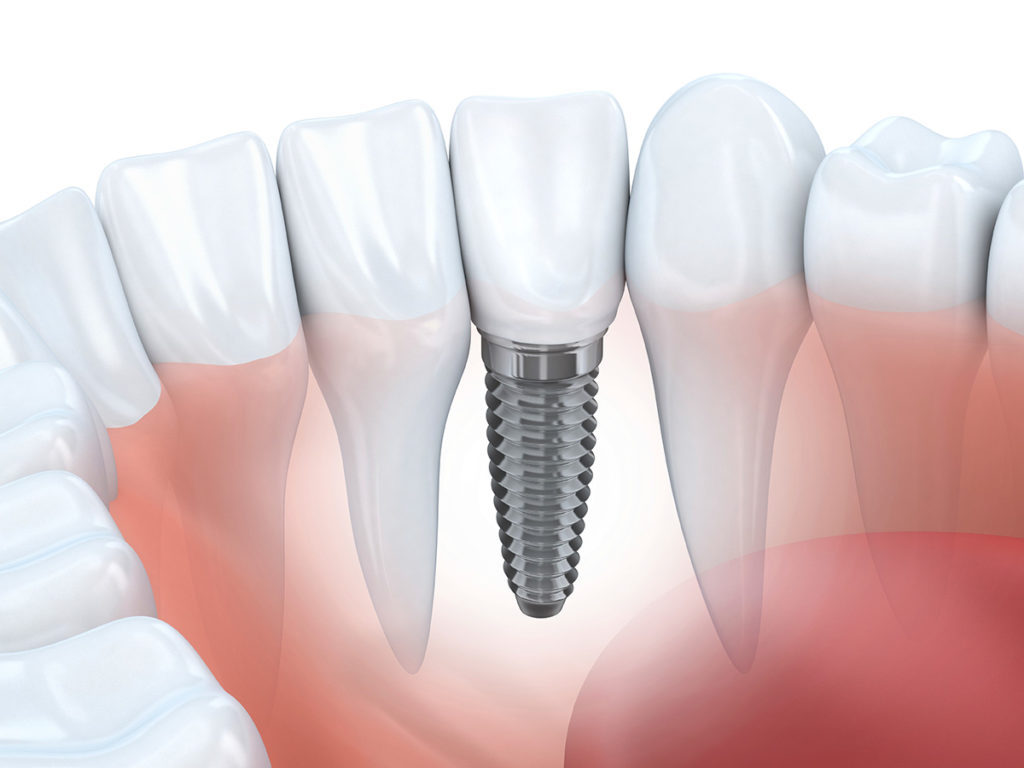
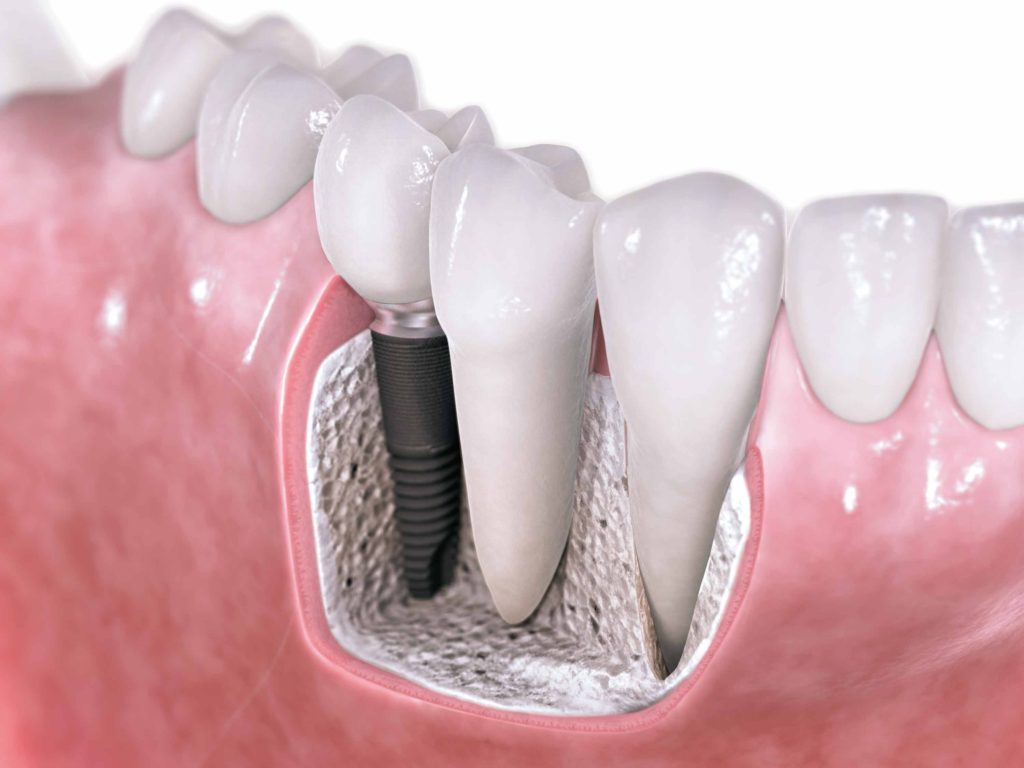
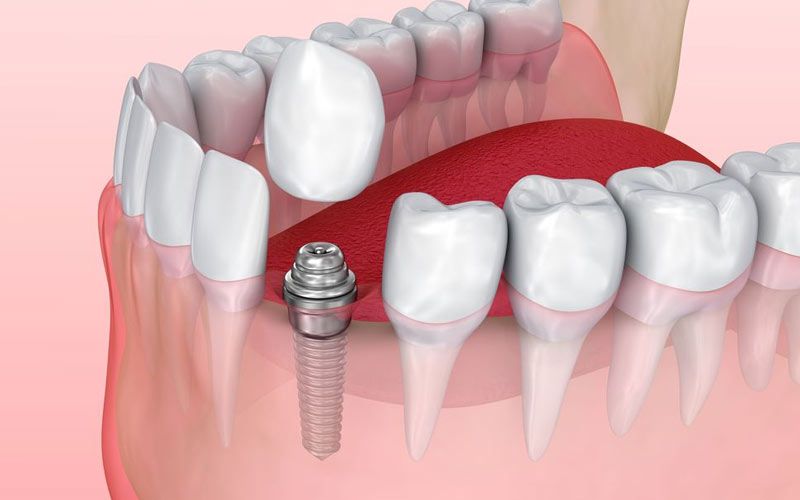
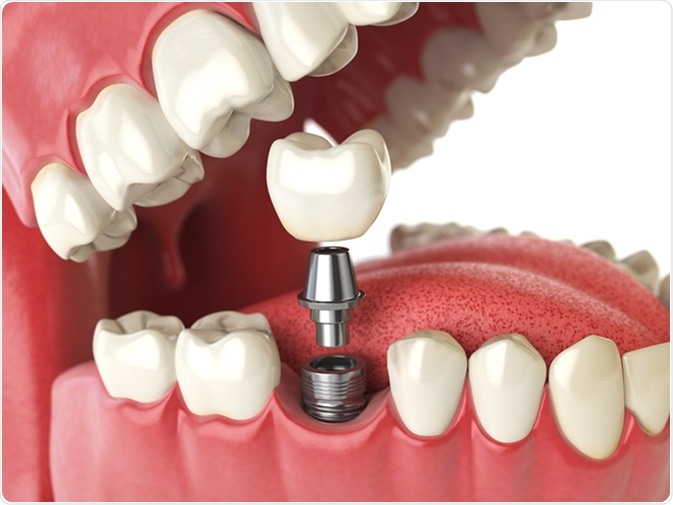
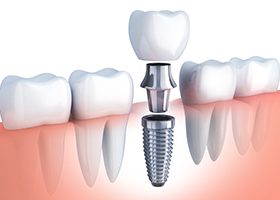
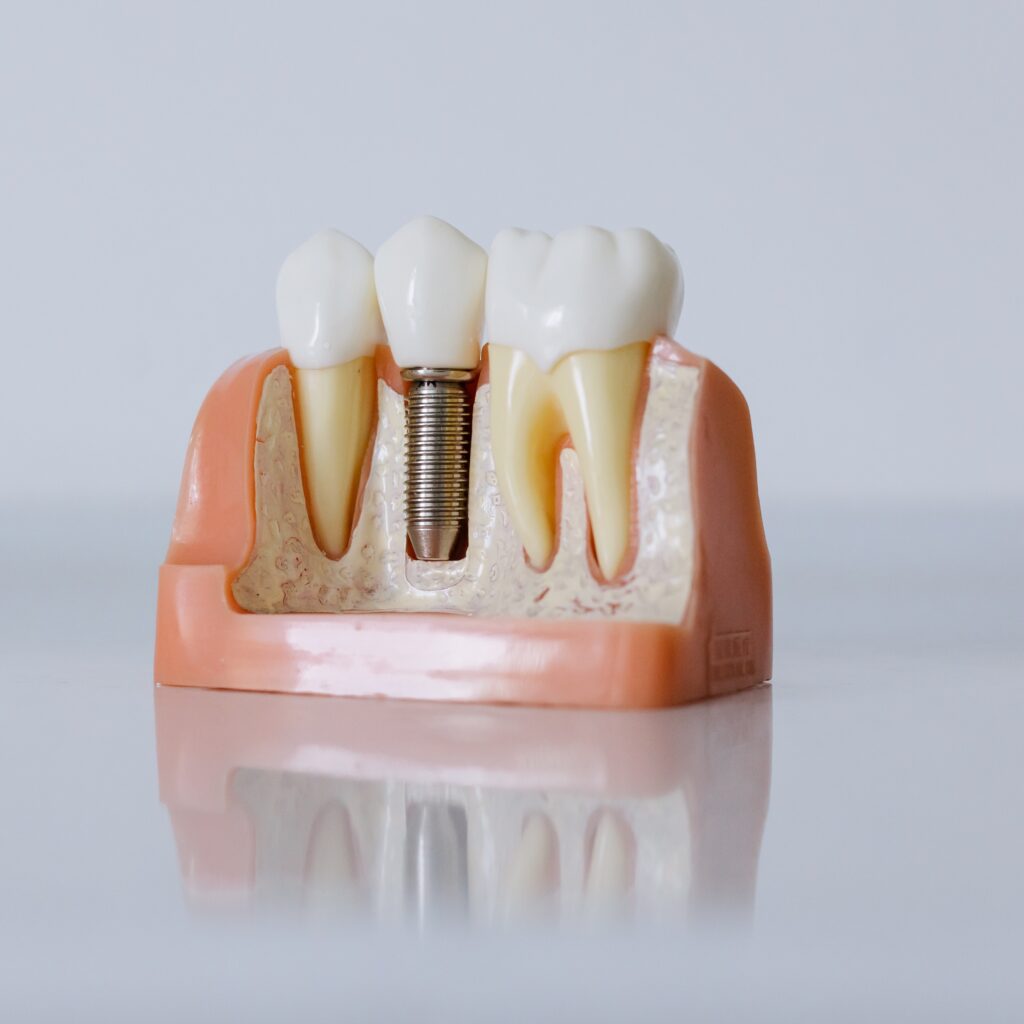
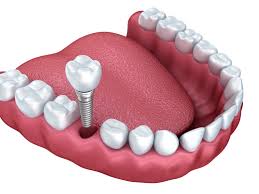
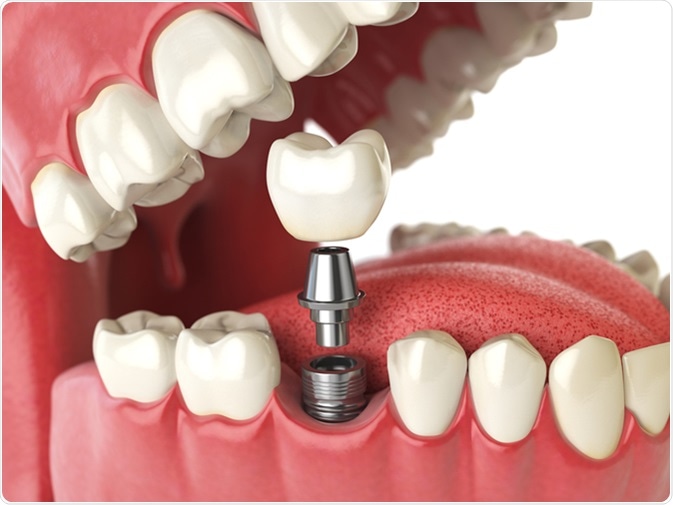
Dental Implants in Karachi
Since Dental implants Osseointegrate (fuse) to your jawbone, they give stability to the artificial teeth. Implant-retained dentures and bridges usually do not move during eating thus providing a stable base during various functions of the jaw. The overall fit and stability provide a comparatively better and close-to-natural feel than the conventional crown and bridges.
A dental implant acts as a replacement for the roots of your teeth. Once surgically placed dental implants are not visible just like tooth roots. The success rate for dental implants is the highest for any implanted device.
Dental Implants are placed in the bone where they osteointegrate and provide support to the prosthesis such as crowns and bridges. They can also be used as orthodontic anchorage units. Osseointegration is the process by which implants form strong links with the jaw bone. Osseointegration is made more successful by the precise placement of the titanium fixtures, followed by the dental prosthetic. Time for osseointegration is not constant, once integrated the implant can be directly joined with the prosthetic or used as a support for the prosthesis.
Dental Implants Planning and Procedures by Rehan Dental Surgery
A great amount of Planning goes into performing implants. It’s based upon the overall health of the person (previous treatments, diseases, etc.) but mainly on the condition of the jaw including the health of the mucous membranes, the design and arrangement of the jaw bone, and the surrounding teeth to an area of operation.
The Placement of the implant is usually in a recent extraction site so as to decrease damage to bone and save time from your busy schedule. Both of these things are achieved as a result of the soft tissue envelope being conserved.
In order for the implant to properly osseointegrate, it needs an ample amount of bone and it requires a dense healthy soft tissue (gingiva) covering it. Surgeons however often need to rebuild the jaw or the soft tissue due to it being lacking in the patient prior to or during the implant procedure because it may have been lost during the time delay between teeth loss and implant placement. Therefore it is recommended to get the implant placed immediately after extraction to preserve bone and soft tissue.
The gingiva covering any tooth comprises two layers. The first layer is bright pink, with very strong attached mucosa. While the second is a darker, unattached mucosa that runs to the cheek. Implants require healthy gingiva in order to survive over a long period of time.
Recovery after Dental Implants Procedure At Rehan Dental Surgery
The prosthetic phase starts as soon as the implant has formed strong enough links with the jaw bone and an abutment is ready. We at Rehan Dental surgery will adjust a temporary tooth in place in the case of early loading (less than 3 months). This phase requires an equal extent of technical and surgical skill due to bio-mechanical concerns, specifically when more than one tooth is replaced.
We at Rehan Dental Surgery try to restore dentition and occlusion to a near-natural level so that you can chew better and have pleasant aesthetics. All this is possible at an affordable price. For free consultations contact our clinic through the number given below.
How do implant tooth replacements differ from teeth?
Dental implants and natural teeth can look, feel and function similarly to one another but are very different in actuality. The most important differences are in the way they attach to the surrounding bone, their response to dental disease, their maintenance, and their repair. The most important differences are how they are bonded to the jaw bone, how they respond to disease, and their repair, and maintenance.
Natural teeth are attached to the jaw bone via periodontal ligament composed of collagen fibers that join to the bone and to the tooth on either side. Dental implants however fuse to the bone directly.
The gum tissues also attach to the root of a tooth with collagen fibers as described above whereas gum tissues can stick to the surface of dental implants only.
Dental implants unlike teeth are not susceptible to dental decay and so do not require root canal therapy. Teeth may also be susceptible to periodontal (gum) disease, while dental implants may be susceptible to peri-implantitis, an inflammatory response to the bacterial biofilm of the tissues surrounding the implant, which can result in the disintegration of the bone to the implant.
What type of maintenance do Dental Implants require?
Implant crowns and other prosthetic (false) tooth replacements are made to be remarkably failsafe systems. They are removable and replaceable (only by your dentist), so if damage or wear necessitates replacement, this can be accomplished without affecting the implant(s) or attachment to the bone.
Nevertheless, implants do require maintenance. It is important to practice good daily oral hygiene, including brushing and flossing to control bacterial biofilm. It is also important to see your dentist and dental hygienist. Special instruments are necessary to clean dental implants that will not damage their metal surface beneath the gum tissues. Your dentist will need to monitor your implants to make sure the integrity of the osseointegration is stable, and that the implant crowns, bridgework, or dentures are functioning adequately.

Telephone No. (021)34924052
